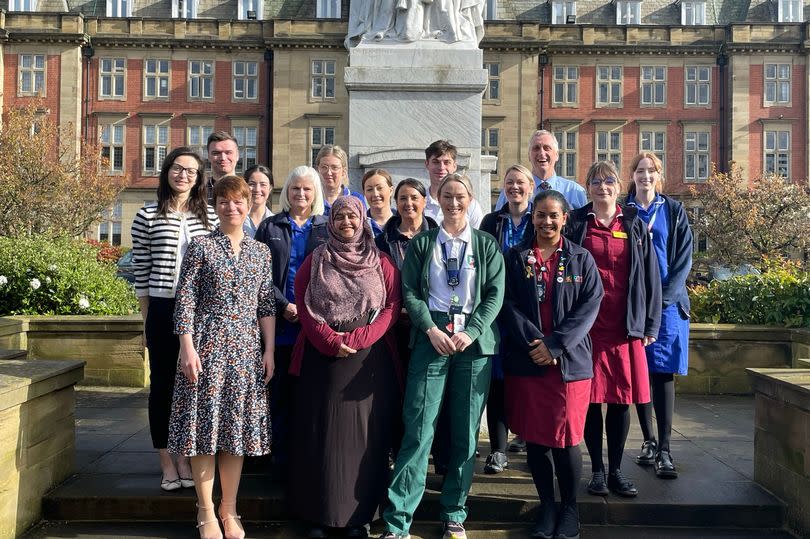Newcastle named as one of six children's brain tumour 'centres of excellence'

Newcastle has "excellent" care for children with brain tumours - according to experts who reviewed services as part of an innovative new network.
The city's hospital trust and Newcastle University have been jointly named as one of six centres for excellence nationwide by the Tessa Jowell Brain Cancer Mission (TJBCM) - set up in honour of the late former minister. After an expert review, the Newcastle organisations were praised across the board for work in this area - including having "excellent imaging services, comprehensive psychological care, and great education services with extensive school collaboration".
The TJBCM network comprises 15 brain tumour centres around the country, of which six are "excellent" including in Newcastle. The care for those with "late effects" - long-term follow-up needs after their initial cancer treatment - was also highlighted, along with play therapy and clinical trial opportunities.
Read more: New £12m research centre will see Newcastle experts at the forefront fighting rare diseases
Simon Bailey, Professor of Paediatric Neuro-Oncology and a consultant at the Royal Victoria Infirmary, said: "It’s a fantastic honour for the dedicated and passionate team and hospital to receive this status and it will mean so much to our wonderful patients and their families across the region knowing that they are receiving care in a centre of excellence.
"The recognition that our team and the wider hospital provide such a high standard of care will ensure we redouble our efforts to continue to look at ways we can further build our service to benefit those going through their brain or spinal tumour journey. Currently around 30 children in the North East and North Cumbria are diagnosed with brain tumours every year and we look forward to supporting the Tessa Jowell Brain Cancer Mission in their programme of work."
Prof Steve Clifford, who directs the Newcastle University Centre for Cancer, said the partnership between hospitals and university was "internationally leading" and added: "We are delighted to be recognised as a Centre of Excellence by the Tessa Jowell Mission.
"This unique collaboration allows us to combine cutting-edge research with our clinical centre and leading roles in international clinical trials, enabling us to drive novel discoveries into clinical practice, improving the standards of care and outlook for children with brain tumours."
Dr Stephen Lowis, who led the review process, said “In every team in every city, we found remarkable examples of exceptional and compassionate care. This initiative will support all centres across the UK to develop their services, through national collaboration and sharing of examples of excellence."
The new network is described as the "first stage in a national effort" to improve treatment, care and research for children with brain tumours. TJBCM will use these findings to launch new programmes around the country to build on the successful services already in existence.
Richard Gilbertson, Chair of the TJBCM and Paediatric Oncology Clinician Scientist, said “This initiative has received an overwhelming and enthusiastic response from the paediatric neuro-oncology community. Together, we are working to ensure all children with a brain tumour receive the very best care, wherever they live.”
Jess Mills, Tessa Jowell’s daughter and TJBCM co-founder, said "Mum’s legacy to transform outcomes for brain cancer patients across the UK has reached another huge milestone. It has been so moving to witness how committed the teams caring for children in hospitals are to come on this journey with us."
Dame Tessa Jowell was a Labour minister who died due to a brain tumour in 2018.
Health Minister Andrew Stephenson said: “A child’s cancer diagnosis is devastating news for any family to process. This new network of brain tumour centres for children will offer world-leading care, from diagnosis through to treatment. We want to improve outcomes for all brain cancer patients, which is why we have provided £40million for research to help save lives across the country.”

 Yahoo News
Yahoo News 
